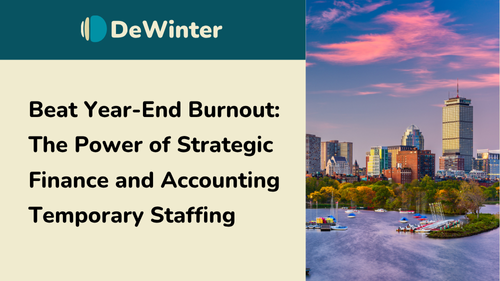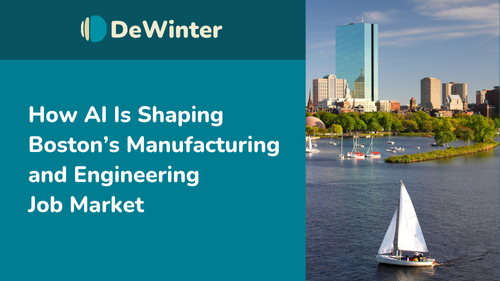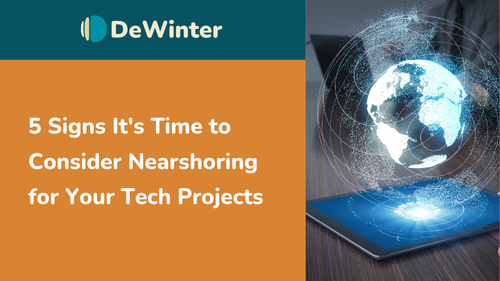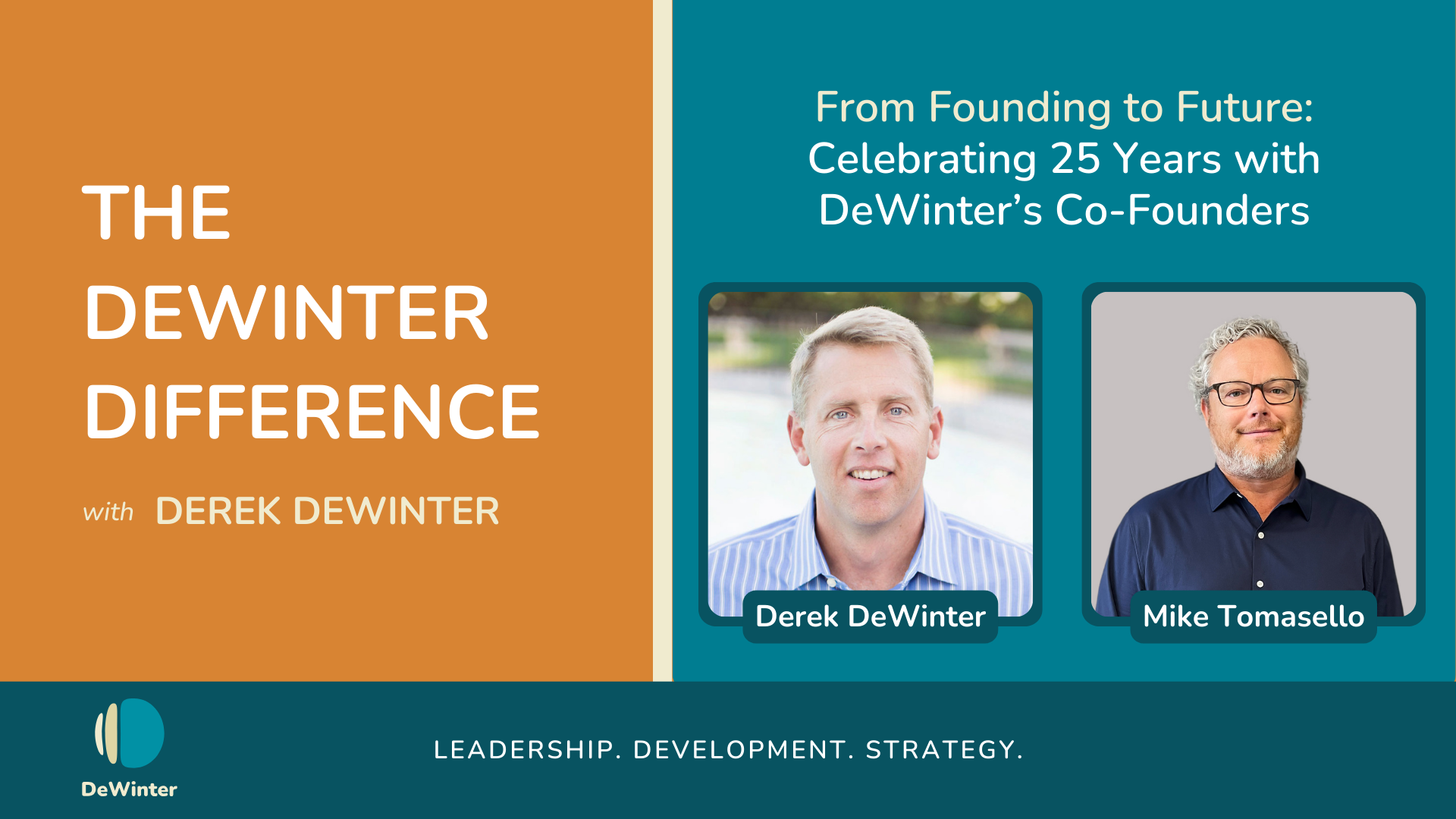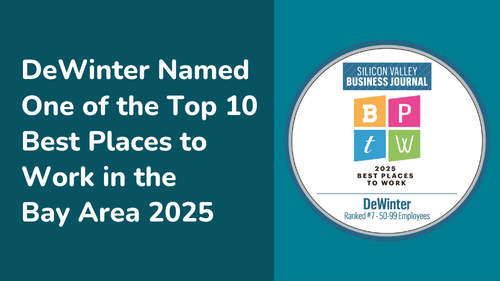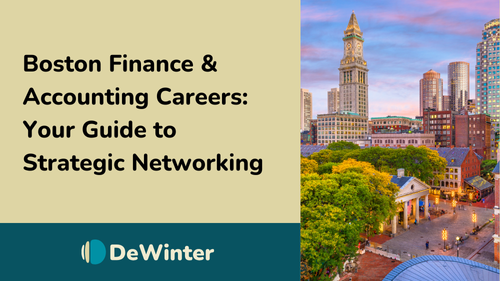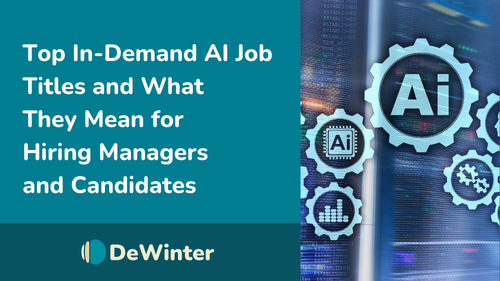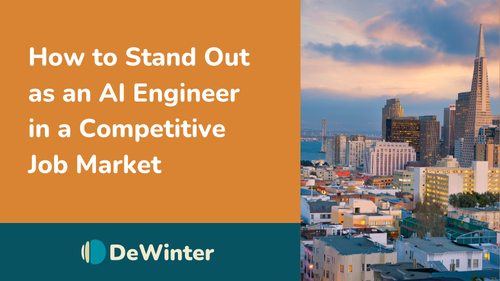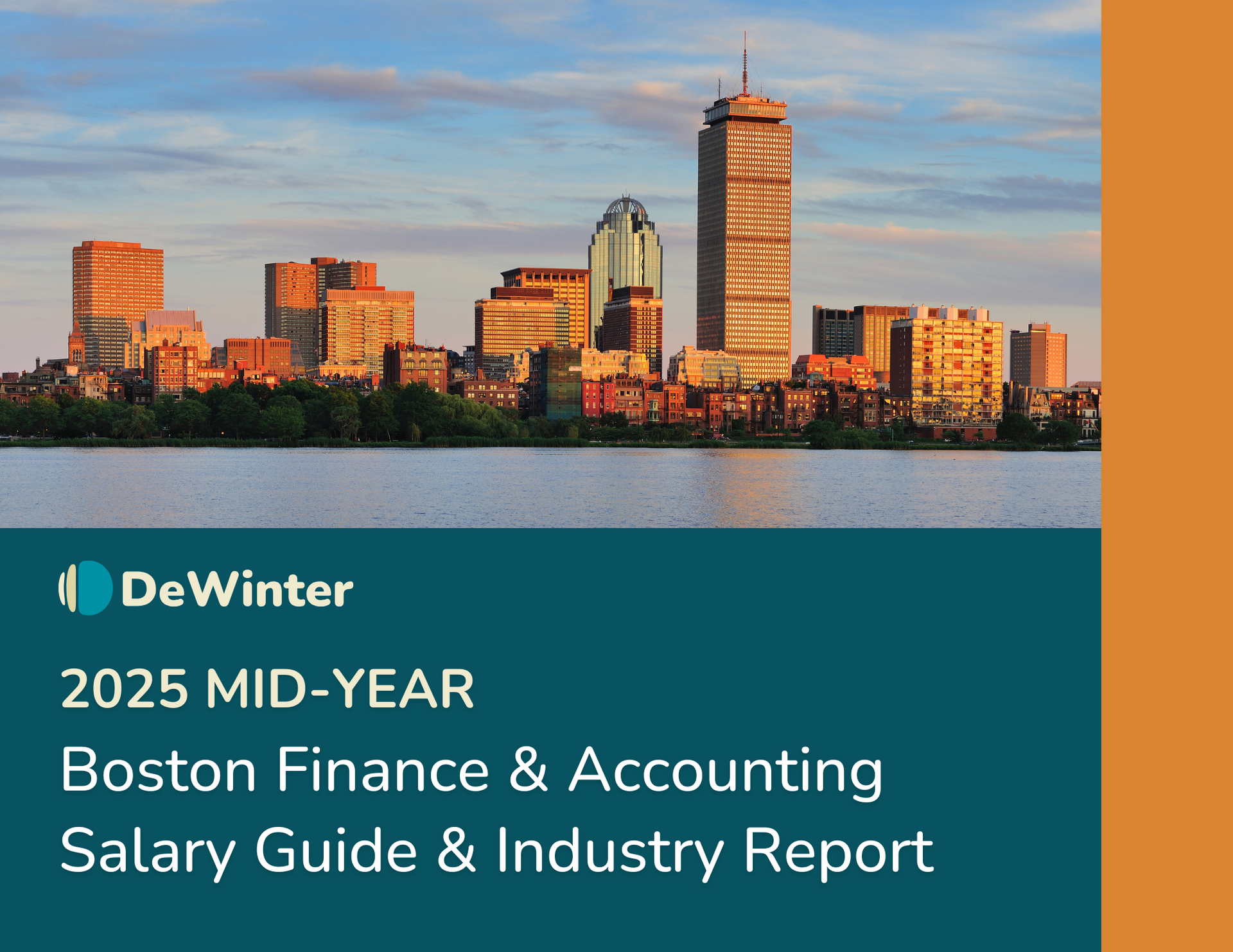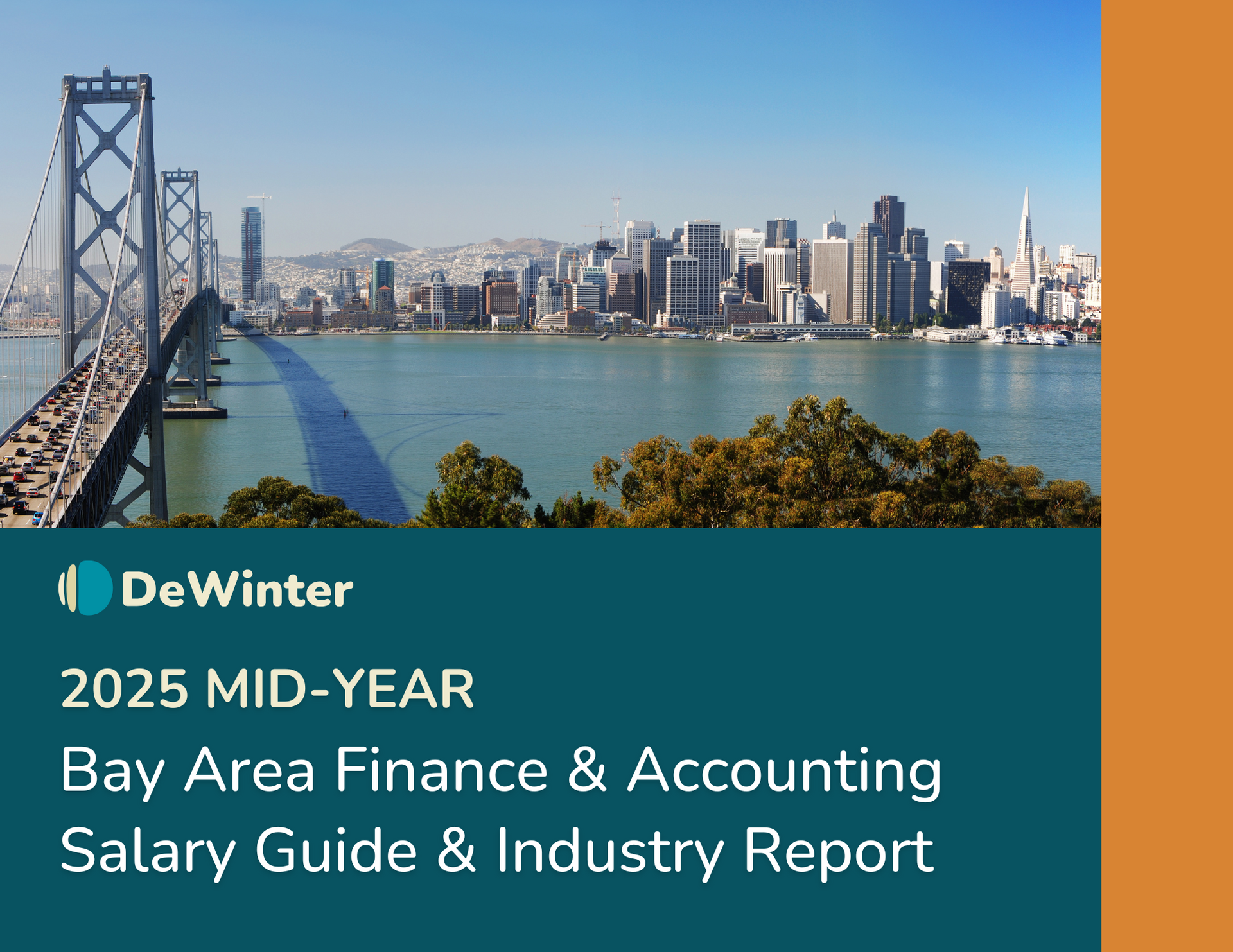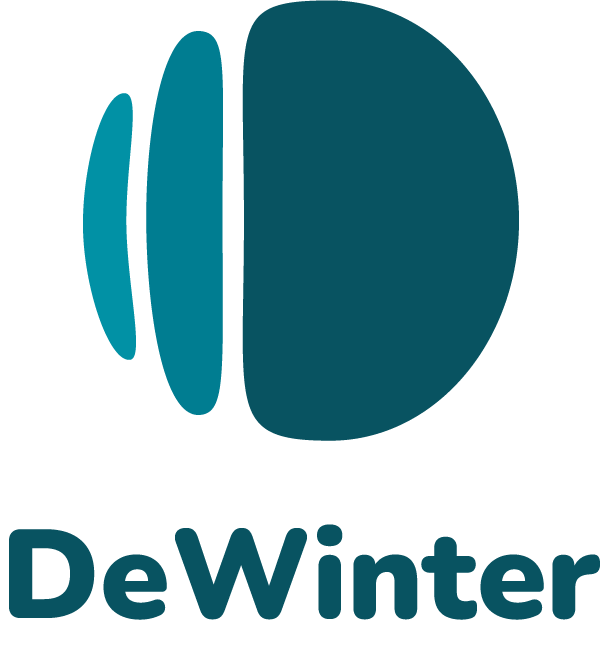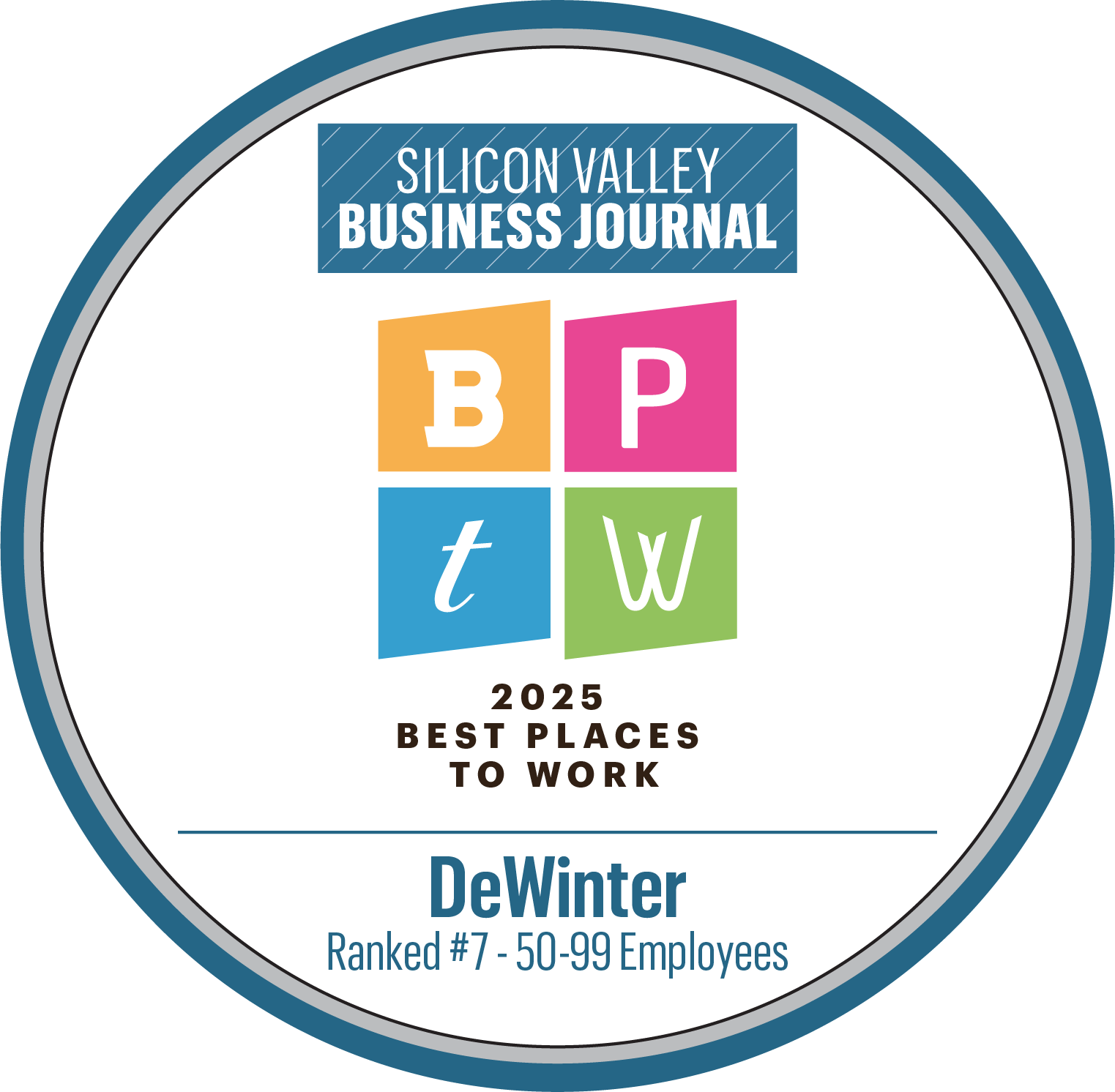The DeWinter Difference: Adriel Lares, Chief Financial Officer of Stash
About The Episode
In this episode of the DeWinter Difference, Derek sits down with Adriel Lares, Chief Financial Officer of Stash. Adriel and Derek discuss the evolving role of today's CFOs, the impact of AI, finding the balance between in-person and remote interactions, and their shared love of making wine with friends.
Check out Memento Mori, Adriel's California-based winery at
www.mmwine.com.
Listen now at the streaming sites listed.
Learn more about the DeWinter Difference podcast here and share your thoughts and comments below.
Episode Transcript
This transcript has been edited for length and clarity.
Derek DeWinter: Welcome to our listeners who are tuning into the DeWinter Difference, an audio podcast where I spend a bit of time with incredible executives I've known for years, and you get to listen in. I hope our conversations are unique, insightful, short enough to keep your attention, but long enough so that you get some great takeaways that you can apply in your own career.
Today, I have the very good fortune of speaking with Adriel Laris, the CFO of Stash. His distinguished career includes a long list of M&A activity financing. public offerings and he hung his hat at noteworthy tech companies like Fastly, Three Par, and Lookout. We actually have a fairly unique connection in that we're both parents of twins and then we're either crazy or lucky enough to have a third and are also winemakers some more than others.
I'm not entirely sure if wine-making was a result of a third child, but it certainly is the byproduct of having a third child, at least, the wine-drinking. Adriel, Thanks for joining us today.
Adriel Lares: Thanks for having me.
Derek DeWinter: You've had an awesome career so far, but, you know, things start from something and why don't you take us back to the early decisions you made in your career from school to the first couple of jobs and, maybe kind of walk us through whether or not they were very intentional, opportunistic, or maybe a mix of both to help you kind of get your career moving in the right direction.
Adriel Lares: Thank you. I think you're leading the witness there a little bit. It is a mix of both. It's interesting because I was just speaking with a mentee about this very conversation because the question he had of me was, well, how should I think about the world? You know, I'm interested in, you know, AI and coding and dah, dah, dah, dah.
Where should I go if I, you know, choose one career? Will it lock me in for the rest of my life? I warned him that it's neither, you'll neither get locked in but it also could be something you have a true passion for over the long run.
For me personally, when I graduated from college I happened to have gone and studied abroad the fall semester.
As you may recall, and I think this still exists today, a lot of the recruiting happens in the fall so I missed out on all of that. Dating myself, going back to the early nineties there was a bit of a recession, a bit of a challenge from a macroeconomic hiring standpoint, at least for the sort of positions I was sort of looking for. When I got back from that sort of study abroad I was looking in the handy dandy local newspaper and there was a position with some big mouse ears and that was the Walt Disney Company. Anyone who didn't get a job in the fall was basically applying for this position. I was fortunate enough to get it and I guess the sort of the opportunistic part of this was, it was in finance. I was working down in Southern California and I was about a year and a half into it and I was really learning some great skills, great boss, who I'm still in touch with today, and a friend of mine who is in parallel had gone to university with me as well, had been in investment banking and talked about all of the challenges and the long hours, et cetera, et cetera. I'd only seen the, you know, the glamor of an investment banking career, all this great stuff. I sort of chose maybe not quite on the outside, the smartest thing to do but I basically restarted my analyst career. I had to sort of join in off-cycle so I was about a year and a half into working and I sort of restarted my career in investment banking that happened to be into the Morgan Stanley Tech group which is, it was intentional because I wanted to learn about technology.
I wasn't technical by background, but I just wanted to be near what I thought was the action, technology. What that did for me is it gave me a great bird's eye view of all of these different companies, all these different management teams, all these different industries. After three and a half years there, it really gave me the grounding and most importantly, the experience and the learnings that I didn't wanna be, not that I didn't wanna be, I really wanted to be part of one of these companies.
I wanted to sort of stay in it for a sort of longer run than necessarily advising or pitching in from time to time. You know I have many great friends and great careers in investment banking. I just wanted to sort of do the little bit more, the longer run, which sort of led to my career today. Which is sort of these longer stints as a CFO for these really great companies. You sort of get them at a certain stage and you hopefully can add something along the way.
Derek DeWinter: Was it an advantage or disadvantage to have a couple of years under your belt to Walt Disney going into Banking?
Adriel Lares: You know, it was a bit, I mean, I, I guess I would take it as a bit of an advantage. I remember some of the folks who were joining me at the time were just out of college, and so I was able to lend a little bit of like, well, here are sort of the mannerisms. Here's sort of the maybe expectations I think for all of us: the sheer expected work effort, we were all under. You know if you think about sort of the early nineties, I don't think anybody was ready from a staffing perspective to sort of deal with the on-rush. I think Netscape had just gone public. I, you know, again, dating myself, I did the PitchBook for amazon.com, like this was sort of the beginning of that era of sort of those growth leading up to the bubble burst.
There were just a lot of things to be done with you know, a short amount of time with very few people it was really about just getting the work done and putting all the effort in.
Derek DeWinter: Funny Netscape you're dating yourself.
Adriel Lares: Oh yes.
Derek DeWinter: You’re definitely dating me because that was a client of mine when I first started recruiting
Adriel Lares: Oh my goodness.
Derek DeWinter: We could spin tails.
I've been in search again, speaking of dating myself for almost 30 years, and there's no profile that guarantees success for anything, let alone for a CFO.
That said if I were to give you a hundred dollars to spend on identifying attributes that may help you get to this point, where would you spend that money? How would you allocate that money in terms of the attributes that you think have made you successful?
Adriel Lares: For me, and I was listening to, A podcast similar to what we are in today. And one of the, the sort of the pearls of wisdom that resonated with me when I think about my own career, which is always, you know, uncertain trials and tribulations down different branches that sometimes worked the way you expect and oftentimes go in different directions than you otherwise expected. The thing that I think consistently worked for me was showing a willingness to finish something that you've been asked to do and being known for the reliability of delivering. Whatever it is you signed up for or you asked to do, and the more that you get known for whatever that is I think it puts you in positions of opportunity and it isn't always going to be where, you know, you complete a task and then you know the next task is suddenly gonna be bigger and better and compensated more. I think it's really sort of keeping your eyes to, you know, sort of being ready for the opportunity, but always sort of keeping your eyes on sort of what it is you're delivering today and be you know, highly focused on that. I think for me, that's probably where I'd allocate most of my dollars. You know, the other aspect is, you know, being willing to be curious and learn, from others. I try to do that, especially within investment banking where I remember one of the first things was being taught is, do not use the mouse only use the keyboard. Be as fast as you can, and just be willing to humble yourself to say like, how can I learn from someone else who you know, forget about whether they may or may not be smarter than you are. At the very least, they probably have had different experiences than you've had. So I tried to keep myself open to that and I think that really helped me be ready to take advantage of opportunities because I was willing to learn and listen to others.
Derek DeWinter: It's an interesting thing, thinking about kind of willingness to finish something that you started, and as I think about that in terms of the Bay Area, one of the great benefits of being in the Bay Area and the tech universe that we're in is there are so many opportunities, generally speaking, and if one doesn't work out, there's usually one around the corner, which leads to great opportunities, but can also lead to a pretty choppy resume, you know, if you aren't making the right decisions. That's one of the things that I think about when I do look at folks who are, you know, progressing through their career, is this a person who finishes what they start?
And I think about that all the time. So it's interesting that you bring that up. You mentioned AI earlier at least really briefly and as it relates to the functional role of a CFO, do you find yourself more concerned or excited about the impact on the way, on its impact on the way that you do your job?
Adriel Lares: So we've clearly seen a lot of different changes and impacts to the CFO role and sets of responsibilities and whether or not it's cloud computing, workflows that impact our jobs and allow us to do things in more efficient ways. I look at this the same way, and I guess. The breadth of the pace of change is certainly interesting. However, I always look at, you know, what are the actual things that we can improve upon? More importantly, there are other things that we can be doing even before you get to AI. At a super high level, I am intrigued dare I say, excited about it, mostly from the standpoint that There are a lot of day-to-day tasks that are done within the purview of the CFO umbrella that I know can be improved upon, done more efficiently, and most importantly, you know how can a human, for lack of a better way to describe it, become more of an editor than necessarily the first draft writer. I think there are a lot of ways one of the first ones is, think about writing the first draft of the S1 one or your Q or your K. Think about all the humans that would go look at used to be paper and look at other K’s and other Q’s and try to figure out, okay, well this is how these other companies wrote this or wrote about their industry or wrote about what they did. We'd rely upon a human to go through all of that effort to produce a first draft. If you could sort of rely upon something else to sort of get you there and then you can sort of edit and go through those, I really do think that can really put us in a better position to be more nimble and react more quickly to what's sort of happening. Especially you know what is to come. I really do think about my role and my job is what just happened. How do I report those results of what happened, what's happening today? How do I make it more efficient with my role with the rest of my constituents? Then, you know, almost maybe most critically is what do I think is gonna happen and how do I use, you know, plans and most recent results to predict what's gonna happen, and I think AI can really help us, you know, in the future, help us be better at that job.
Derek DeWinter: I imagine this is a topic of conversation in the boardroom, but in particular probably in your audit committee meetings.
Adriel Lares: Yeah certainly. I've been in situations where I've tried to recruit board members and or audit committee members. I myself am on an audit committee today, I have a public board. The question is, is, is certainly being asked. I think sometimes people forget that AI has been discussed for a bit of time. I think with the release of, open AI product, it just became much more tangible about the what if and what this could be. I think it's just on topical in people's mind they're trying to figure out what are the sort of practical applicability of it on the day-to-day basis. I think it's gonna come to the more simple things first let's learn to, you know, to walk from crawling. And then we'll figure out what other places we can sort of find situations where it can be more useful, it can be more applicable again productivity enhancer.
Derek DeWinter: Let's say that I'm interviewing for you which would not be a good thing you would never be hiring me to work within your finance organization. But let's say I'm interviewing with you today. What are the types of things that you are asking or looking for that are perhaps different than you may have been looking for four years ago, three years ago, whatever, before COVID?
Adriel Lares: I think it depends a lot, at least for me in particular, it depends on the scale of the company and where it's at. Let me give you my shorthand version of companies that may or may not resonate with you. It's the way that I've used to describe these tech companies in general, which is from seed to series C. It's, what I describe as complete chaos from series C to IPO. It's like controlled chaos. Then from sort of IPO into future scale, whatever that scale may be it's now sort of struggling to keep growing while remaining agile. For me, when I'm thinking about, you know, where I have been in those different stages of companies I think that really I imbues the kinds of questions I would ask because of the complete chaos you're really looking for a very flexible can do one thing one week, do something else the next week, be willing to sort of change roles and responsibilities and if you take sort of the other extreme of what I just described now, I think you're looking for learned in sort of intuition from learned experience over, you've seen this particular movie before we're willing to apply those experience and skills to improve something that needs to be done more quickly and, and have the benefit of someone who's seen it before in the middle. And that sort of like, you know, series, you know, sort of series c to IPO, you're getting a little bit of mix of both and I think one of the challenges as companies reach that, it's different for, for different size companies in terms of the businesses, whether it's a hundred million sort of scale mark or 200 million or 500 million, you're sort of mixing between those different types of, of peoples and experiences, and it's a little bit of like what it took you to get from seed to series C. May most likely require different people and different skills to get you from Series C to IPO and then from IPO to scale also require likely different sets of skills and experiences. So it's a long-winded answer to add to sort of, you know, sort of address that question. 'cause I think it, I think it does depend a little bit in sort of the stage that you're in.
Derek DeWinter: Not necessarily at all dependent upon, working from home, covid a distributed work environment. You kind of view it the same as before and after COVID.
Adriel Lares: Yeah, I think so. The one thing I've sort of taken away a little bit more now that we're, you can define for yourself what is sort of post covid is the real value of in-person and how much in-person interaction does this situation require because there's so much that can be short-circuited in terms of better understanding you know, quickly brainstorm idea as opposed to in a sort of more zoom like, or, remote like format. It's gotta be a much more premeditated and the premeditated stuff takes out all of that idiosyncratic connection. I don't know the right mix yet. I think I'm still trying to figure that out.
I think we as an industry and or society are still trying to figure that out, but I think there is a realization that we do need some of it. Some organizations need it more than others.
Derek DeWinter: So you are a very accomplished CFO and more if you were not in the role that you're in now, not necessarily with Stash, but as a CFO, what would you be doing? What else would you be doing?
Adriel Lares: I presume I'm gonna put out, we're gonna put aside winemaking. So aside from winemaking that's a great question. I've always had an interest just learning and sort of being in and around history. It was a big interest of mine immediately after graduating from college. I would sort of take college courses when I didn't have children and had some minutes of time. So that would be something I'd like to do. I'd take inspiration from my, hopefully I can say now, good friend and former audit chair twice over Chris Paisley, who is a professor at business at Santa Clara University. I have another colleague who is a professor which is not something I have any expertise in an astrophysics. Just that idea of being able to sort of pass on some knowledge. I don't know that I could do it with clearly, the level of professionalism and rigor, but I think I'd have some pretty good stories that I could share.
Derek DeWinter: I am sure, especially astrophysics. Alright, so this is an unscripted piece of our conversation because I don't know what you're gonna say to me, but you get a final question from me. So, gloves off. I don't know what you're gonna ask me. I'm not sure if my response is gonna be good, but you get to ask me a question.
Adriel Lares: Sure if you. Were going to be a CFO. What style of CFO would you be? I'm leaving that question open-ended on purpose for you to describe.
Derek DeWinter: Well, boy, that's a far, that's a long trip from starting my career in public accounting to now 30 years later, not doing anything in accounting or finance and being, and recruiting for so many years. If I imagine being a CFO, it's, it's probably not that different than being an executive or leader in any other function.
I think more the roles of someone who has a large organization, small organization, moving parts, has to connect with other groups. I think you really just need to have a very collaborative mindset. My wife has forever told me one of my better attributes is listening. Maybe because she tries to keep me from talking, I'm not sure.
But I think as a leader, if you can do more listening than talking, I think you're gonna get a far better perspective of how to actually then lead your organization the right way. People have a tendency, I think, to fill blank spaces and no noise with noise without really taking a step back, I think, and doing just a little bit more analysis on things before the words come out.
So I'd like to think of myself as a very collaborative and empathetic figure, and I hope that I would bring that to the table as a CFO and I hope I bring that to the table now in the role that I'm in.
Adriel Lares: Well, I think I would sort of echo the sentiment of, I think you are of your wife's sentiment is, I think you are good at that. The only other thing I would add to that in terms of where I think it really works well is one of the key responsibilities or maybe aspects of the CFO position is ultimately an allocator of capital. I would sort of posit that, you can't allocate that capital with only what's ever in our brains. You need other people's perspectives, and the only way to get to those perspectives is to ask good questions and hopefully have the trust that you will listen and hopefully with more questions, get a better perspective so that when you do allocate that capital, whether it's to make more money, to spend less money, to do whatever you can be better at it. So I think that'd actually be a pretty good skillset of yours in my role.
Derek DeWinter: No, I appreciate that and certainly I think if you're very good at what you do, one of the hardest things to do is actually letting go of doing it and letting someone else do the thing. So, you know, the allocation of what you do to other people is a learned thing.
Adriel Lares: Well said.
Derek DeWinter: It doesn't happen overnight. Well, let's spend just a minute talking about your wine 'cause it's delicious and it's amazing. You're on a board of Duckhorn, is that right? Still?
Adriel Lares: correct.
Derek DeWinter: And then the winemaking. How do you, how did this whole Memento thing pop up?
Adriel Lares: It actually all started one as a collector and as a sort of purveyor of wines back in the early 2000’s, this was when I was at Three Par and I'd have a weekend freer here or there, I just got really into it. Later on my best friend and another good friend of his we would, go up and wine taste together and sort of follow me around up in Napa Valley. They said why don't we start a winery? We can sort of get together every year and this would be a great excuse to do so. My finance mind immediately was like, that's a terrible idea. Do you realize the cashflow implications of this wide business? It's actually not very good. I'm like there are other ways to get together every year we can do March Madness, we can do Mardi Gras. There's many other excuses that have limited cashflow impacts, maybe not Vegas, but nevertheless against all my protests they convinced me because I was the one who had most, if not all, the contacts within Napa Valley. They knew that if they got me tinkering with it, I wouldn't maybe be able to help myself, but want to be more involved. We launched in 2010 with about 150 cases and we just released our 2021 vintage last week. We now have an estate up in Calistoga, I feel incredibly fortunate to be able to have this, and to your point, this is maybe the other challenge of being able to sort of let go and have responsibilities done. I am no longer the day-to-day CFO I let sort of other folks do that, and I get to now enjoy. You know, over a decade into this business, and I love it. As I think similar to you the thing I love most about wine is it's similar to life. It changes, and it ultimately transforms. If you leave it, it'll turn into vinegar. Hopefully not like our personalities, but, it changes and that's the thing I love most about it.
Derek DeWinter: Can someone buy your 2021?
Adriel Lares: They can it's decently allocated. But yes, if you go to mmwine.com or marymarywine.com, you can certainly jump onto our mailing list and you can see my highly photoshopped profile picture while you're at it.
Derek DeWinter: Awesome. I will do everyone a favor and not share the website of the wine that we make, my friends and I. You would not want to buy it. You barely would want to drink it. We have many capital calls and have for the past 10 years on this thing. It seems like one out of every third vintage is lauded by our family and wives and then the other we try to turn into something else.
Adriel Lares: I guarantee always fun making it.
Derek DeWinter: Always fun, it is always a great time.
Well, Adriel, I appreciate you taking the time out of your very busy schedule. I know you're just back from a trip and I think this is just your first day back, so even more kudos thrown your way. You've been great to me and awesome to work with over the years.One of our better clients that we've ever had, to be honest, and you're a great guy on top of it. Thank you so much for your insights and your time, and I'll look forward to cross some paths with you in the very near future.
Adriel Lares: Absolutely. Thank you so much for having me.
Derek DeWinter: All my best. Take care.

